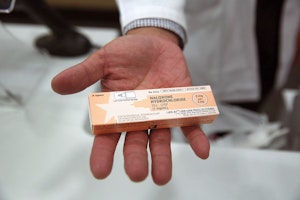Will the Syriza Party Solve Greece’s Health Care Crisis?
By Yannis Natsis

On January 25, the people of Greece offered a firm rebuke to the doctrine of austerity in a pivotal election that swept the liberal Syriza party into power. It was a clear turn away from the drastic horizontal spending cuts that have restricted, among many other things, access to medicines and health services.
Greece’s new government now must sort out the many problems created by a prolonged period of drastic budget reductions—the breathtaking number of uninsured citizens being among the most urgent.
In Greece, health insurance is linked to employment. Over the past five years, the jobless rate has skyrocketed to almost 30 percent in the general population and to 60 percent among youth. Officials today put the number of uninsured at about two million in a country of 10.5 million people. Who are these millions of uninsured, and what happens to them when they get sick?
Most of them belong to the middle-class, or what used to be the middle-class: people in their 30s, 40s, and 50s; small- and medium-business owners; the self-employed; and others who were forced out of work before reaching retirement age. In many cases, their loss of health insurance meant their family members lost their coverage, too.
The other group of uninsured is the chronically unemployed younger generation, who are better off only because of their youthful good health, which makes the problem of uninsured citizens seem deceptively smaller than it is.
Data collected by NGO-run social clinics and pharmacies—the proliferation of which is, in and of itself, another symptom of the crisis—indicate that people are seeking out such services for more and more serious health problems. Moreover, patients are increasingly becoming their own doctors, self-managing their conditions and selecting treatments based on what they can afford rather than what is most appropriate. This applies not only to the uninsured, but also to those who still enjoy some form of social coverage but suffer from significantly increased copayment percentages and out-of-pocket expenditures.
These factors not only worsen the nation’s health now; they point to a higher cost for the public health system in the future, which will eventually be forced to deal with the population’s slowly eroding health.
The time to reverse these trend lines is now, and the new government has a mandate to do just that. It could encourage price reductions on drugs and medical procedures, prioritizing expensive life-saving treatments for chronic diseases such as cancer, hepatitis C, HIV, diabetes, and others.
The government could also guarantee transparency and unconditional accountability in the public health sector, especially concerning pricing and reimbursement policies. To this end, it could publish detailed information on state pharmaceutical expenditure, both in volume and in value. And it should encourage a healthy generics competition, which leads to affordable treatments for more patients.
But it’s not just about making health care cheaper; it’s also about making the system smarter. Health policies should be dictated by what can be proven—comprehensive impact-assessment studies, and health indicators that take into account the needs of patients and the real added therapeutic value of new medicines. Making actual patients part of decision-making bodies like Greece’s National Organization for Medicines is another key step that could be taken—one that many other EU countries already have.
Finally, Greece could begin the process of decoupling health care from employment. As long as having a job is the thing that determines whether a person has quality health care, Greece’s national health dynamic will continue to resemble its economy: fragile and uncertain. The Greek government could turn away from the current employment-dependent health coverage scheme and toward a new national insurance paradigm that will guarantee access to medicines and health services for everyone.
Policymakers need to face up to Greece’s worsening access to health care crisis. Let’s hope that the worst is not yet to come.
TransAtlantic Consumer Dialogue is a grantee of the Open Society Foundations.
Yannis Natsis is an advocacy officer for TransAtlantic Consumer Dialogue.


